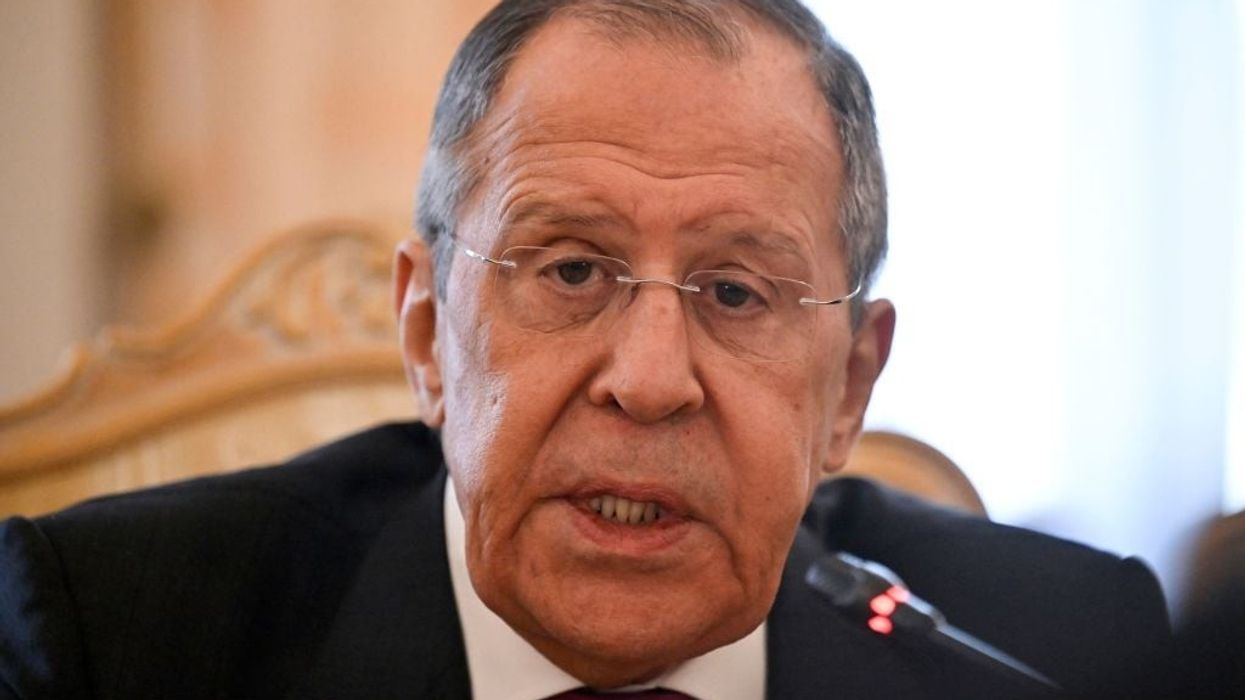RUSSIA has claimed it is trying to stop the ongoing war waged against it using the Ukrainian people.
“The war, which we are trying to stop, which was launched against us using Ukrainian people, of course, influenced the policy of Russia, including energy policy,” Russian foreign minister Sergei Lavrov said at the Raisina Dialogue in New Delhi on Friday (3).
The audience at the annual conference on geopolitics and geo-economics received his remarks with both laughter and applause as he deliberated on Moscow’s position on the conflict and its repercussions on the world.
He accused western nations of raking up the Ukraine issue during G20 meetings while claiming nobody "gave a damn" over the situation in Iraq, Afghanistan and Yugoslavia in previous deliberations of the grouping.
Lavrov also wondered why everyone was asking Russia whether it was ready to negotiate to end the war after Ukrainian president Volodymyr Zelensky had signed a decree making negotiations with Moscow under president Vladimir Putin a "criminal offence".
The Russian minister said US president Joe Biden and NATO secretary general Jens Stoltenberg have publicly stated that Moscow must be defeated on the battlefield.
"They say Russia must suffer a strategic defeat and this they say is existentialist for the west in the context of global domination. This is a blunt admission," he said.
Referring to the G20 foreign ministers' meeting on Thursday (2), he said the western leaders had raised the Ukraine issue, but wondered whether previous declarations of the grouping ever discussed the situation in Iraq, Libya, Afghanistan or Yugoslavia.
"Nobody was giving a damn about anything but finances and macroeconomic policies which the G20 was formed for... when Russia has started to defend itself, there is nothing except Ukraine that is of interest to the G20," he said.
"It is a shame. If they say it is existentialist for them, it is existentialist for us," he said, adding that Moscow had been warning the West for decades against the expansion of NATO and pushing arms into Ukraine to prepare them for war against Russia.
Lavrov said the countries in Europe were not affected by what Russia was doing in Ukraine, but by the reaction of the West to Moscow's actions in the region after ample warnings.
"They do not remember when Serbia was bombed. Joe Biden, a senator at that time, bragged that he promoted that approach. When Iraq was ruined as a state, a few years later Tony Blair said it was a mistake. You think the United States has the right to declare a threat just like they did to other countries, but no one questions it for that," the minister added.
Russia trying to stop war waged against it: Moscow




